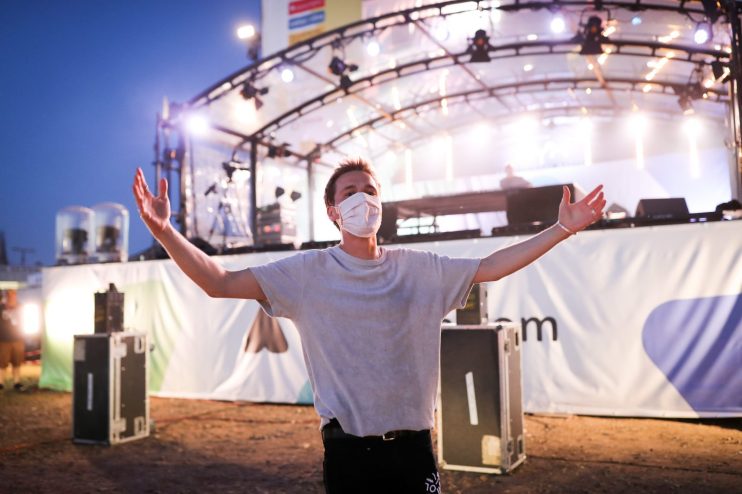Give our events industry the tools to save itself from Covid

More than 1.5 million people are employed in the UK’s events industry and we all have one thing in common: we are problem solvers.
That is what we do, day in, day out. We are logistics experts, known the world over for our technical and creative talents.
We are ready to get back to work, and we can help to reopen the economy.
Across every sector, from conferences and trade fairs to festivals, weddings, cultural and sporting events, our industry contributes £84bn to the economy. But we were shut down in March and, unless the government urgently changes course, we will be the last to reopen.
A new national campaign launching this week, #wecreateexperiences, is raising awareness of the power of live events and experiences: the value they create, the pleasure they bring, the jobs they generate.
As a promoter who has spent more than 50 years putting on shows, I have seen the impact of big-ticket events. When you bring 50,000 people into a city, everyone benefits: restaurants, hotels, taxi drivers, shops — not to mention the guests themselves.
Right now, the current Tier 2 restrictions across most of the country limit indoor audiences to a maximum of 1,000, which means that large events are not financially sustainable. Most event organisers work on 75–80 per cent capacity just to break even.
So when might such events be allowed to resume?
Addressing the recent Major Events Summit, culture secretary Oliver Dowden talked of a glimmer of hope and light at the end of the tunnel, and said 2021 would be a year of recovery. But big events need a lead-time of up to six months, and they will only happen if we start planning now.
We need the government to set out a roadmap for the return of big live events. We cannot get back to business without a clear target date.
And there is other assistance we need from the government too, to help manage the financial risk and enable us to make our venues as safe as possible.
This industry has never taken subsidies from the government and we do not want to start now. But unless we have a comprehensive insurance scheme, it will be impossible to put on live events. We are talking about millions of pounds of liability per show, and we need help from the government to help underwrite a national scheme.
As for safety, our events industry is known for its high standards and venues are investing heavily in technology that will make it safer to attend a big event than piling into a shopping center. A rigorous testing environment would enable us to put on safe events by creating a bubble within a bubble: every person attending, performing, or working at the venue will be tested before they are allowed in.
We are more efficient than almost any other industry because we have the data of everyone who attends a show. All we require to really make this work are public health officials to evaluate test events, take responsibility and tell us they are acceptable. It is not a big ask.
After the year we have had, people are desperate to get back to enjoying festivals, shows and shared experiences. But they need to be reassured that big events will be safe.
Give us the tools, and we can do the job.
Main image credit: Getty